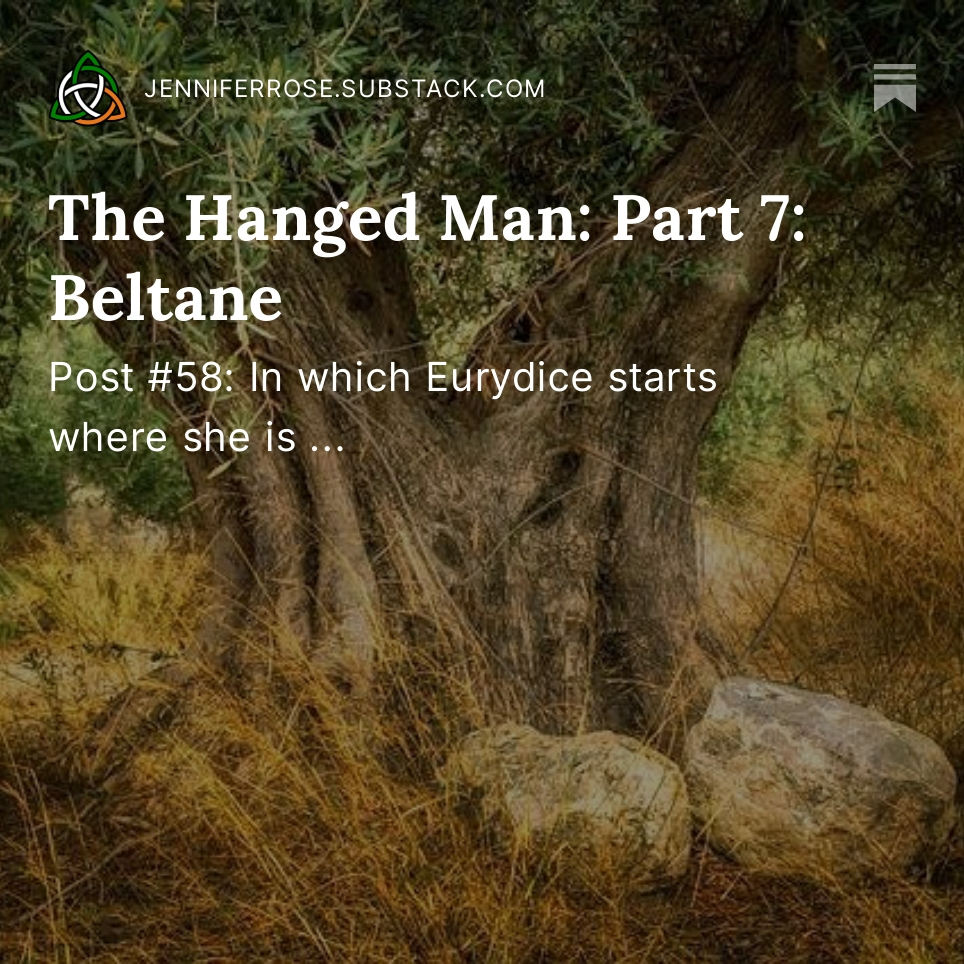by Jenny Rose | Dec 9, 2023 | A Flourishing Woman, Creativity
Turning and turning in the widening gyre
The falcon cannot hear the falconer;
Things fall apart; the centre cannot hold.
–From “The Second Coming” by W.B. Yeats
The line “the centre cannot hold,” has been running through my mind for several weeks, through all the time I’ve been sick with COVID and whatever nasty virus followed in its wake, and my slow recovery. “The centre cannot hold.” I found a quiet moment and looked it up. I knew it was poetry, but I couldn’t remember who wrote it or what the poem was. Thank you, Google!
W.B. Yeats, of course.
I suppose it’s a common experience to feel we’ve lost our center, our groundedness, when someone significant in our life dies, as my mother just has. I’ve fought against the feeling because over the years I’ve worked so hard to individuate from my mother, to reclaim my right to center my life around something other than her. If she was not the center of my life, why do I feel things have fallen apart since she died in August?

Photo by NASA on Unsplash
Did I fail to reclaim my power, define myself and my value apart from our relationship? Has all my work been for nothing? Are my healing and growth an illusion?
I have been afraid of answering these questions.
When I reread the first three lines of the poem, I first imagined myself as the falconer and the falcon as … my soul? My joy? My wisest self? My intuition? All those and none of those, exactly. The falcon seemed like a piece of myself I lost a long, long time ago when I was child, a piece I struggled through many years and miles to find and reclaim, and now is lost again. It can’t hear me, and I can’t hear it. It feels unbearable. My center didn’t hold. Why didn’t it hold? Did I do something wrong? How do I call it back to me?
And I want to call it back, not haul it back by its jesses. In fact, why is the falcon restrained at all? If it’s truly mine and we belong together, why is it leashed? The idea disturbs me. I want it to be free. I’ve worked too long and hard for my own freedom to relish restraining any other creature. I note I assume the falcon is leashed. The poem doesn’t explicitly say so. Interesting.
Maybe my assumption of leash and jesses reflects all the ways I’ve restrained myself. As a child I internalized restraint. I had to. Everyone else felt free to throw self-control to the winds. Is my feeling of my center not holding asking me to release myself further? Is it time for deeper faith and trust in myself?
As I typed those three lines onto the page to begin this post, I imagined another picture in which my mother was the falconer and I the falcon. She no longer holds the leash. I am free. I have flown away from the only center I was allowed to have and now I’m overwhelmed by my freedom. I don’t know how to be wild. I don’t know how to live without the restraining leather jesses around my slender legs. What if I can’t? What if I perish? Must I find a new falconer to hold the end of my leash? What if my freedom is a mistake and I’m not fit to be free? What if I’ve lost the ability to fly free?
Ugh. Goosebumps.
Don’t get carried away, I say to myself. Slow down. We’re talking about emotional freedom versus physical freedom. You’ve been flying in an ever-widening gyre for years.
What’s changed is that leash, woven of blood and bone and love, woven of years and empathy and need, guilt and shame and obligation, too strong to ever be severed … except, it turns out, by Death.
What do we center around?

Photo by Bryan Goff on Unsplash
It changes, doesn’t it? In my first 20 years I centered around my family of origin. When I was in my 20s and beyond I centered around a man and my children. Work was in there, too. And my family of origin, particularly my mother, who was not pleased to be sharing the center. The proverbial 3-ring circus. It went on like that until my children emancipated and, to be honest, for some time after. Then, as they slowly faded out of my center, being far away and engrossed in their own lives, I centered around some man (but not the same one; I’m a slow learner) and my mother. Slowly, writing began to nudge for a place in the center as well.
This created real problems. Mom could never tolerate sharing. I was used to her competition with the kids and whatever man I was involved with but the writing would have created a real threat, so I hid it. The more I hid it, kept it inviolate and safe from outside sabotage, the more I centered around it, and the more I centered around it the more threatened she felt, though I’m not sure her reaction was conscious and she had no idea what she was fighting against. She just knew she didn’t have all of me anymore.
She was right to feel threatened, because writing eventually tore me away from her physically and geographically, a thing that had never happened before and a last betrayal she never forgave.
In the stresses and strains of the last couple of years, I lost writing out of my center. Oh, I still did it. I blogged and serial published. I journaled. But as Mom’s health and sanity crumbled, she became my center once again, this time to the exclusion of everything else. Work (generally part of the center for all of us) competed, keeping me sane, physically fit, and anchoring me into a community of friends, but Mom once again became the primary gravitational pull in my center. My days and nights were full of her. I had less and less respite and the intensity increased daily, winding around my life more and more tightly, and then …
She died. In the middle of the night, a night in which I lay awake in Maine while my brother sat vigil with her halfway across the country in Colorado.
When I write it all out like this, I can understand why I’ve felt so dazed. I can feel some grace for myself.
The one thing that’s always been in the center is gone.
“The centre cannot hold …”
Being too old to have any desire to put a man back in the center (been there, done that), and loving my job while realizing it’s not big enough to define me, I turn once again to the truest, most joyful, wildest part of my life: writing.
And that’s scary. If I let writing take all the space, time and energy in the center, what will happen? I don’t even make money with it!
I make joy with it instead. Joy, connection, contribution, authenticity. Writing is not a black hole of failure. It does meet my needs. When I write, I actually feel good enough and sometimes even better than that! No wonder I feel bewildered.
As I write this, it occurs to me for the first time to not only allow things to fall apart, but to participate actively in the falling away and, falling down. To dance in the ruins, even as I weep. I’m reminded of a Rumi quote:
“Dance, when you’re broken open. Dance, if you’ve torn the bandage off. Dance in the middle of the fighting. Dance in your blood. Dance when you’re perfectly free.”

Photo by David Hofmann on Unsplash
Things fell apart. The center did not hold. Change, in other words. Life. Which is to say Death.
So, an unexpected ending to this post. Things are falling apart. I’m ready to stop trying to hold them together. It’s time to let go. Mom already has. Now it’s my turn. What lives in our center changes as we change. It’s time now for me to choose my center, choose it freely without guilt or shame.
Sometimes things fall apart and the center cannot hold.
So we find a new one.
Questions:
- What’s in your center?
- If you were free to choose your center, what would you chose?
- How many things compete for your center? Could you reduce the gravitational pull of your center?
- If your life changed in some dramatic way and you were forced to find a new center, how would you go about doing that?
- Is your center all about others, or do you have something there for yourself, too?
Leave a comment below! To read my fiction, serially published free every week, go here: 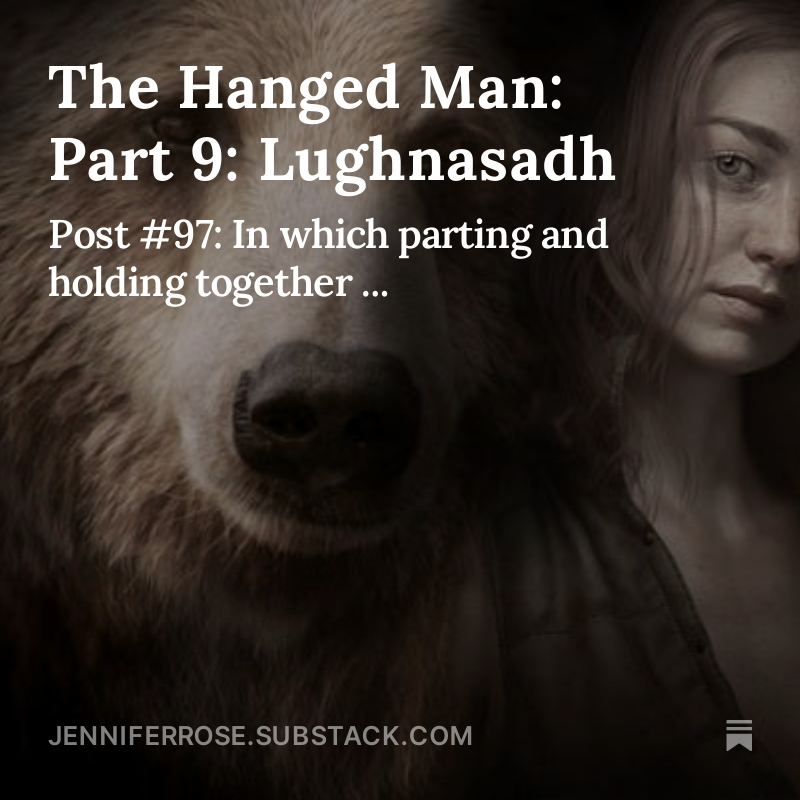
by Jenny Rose | Mar 11, 2023 | Emotional Intelligence, Feelings
In January, my brother and I traveled to Colorado to transition our mother into memory care.
As some of you know and many can imagine, a journey into dementia is an unsettling one on good days, by which I mean relatively calm days. On bad days, days of panic and confusion, days of anger and restlessness, it’s heartbreaking.
One of the greatest challenges for me is the chaos of my jostling feelings, all mobbed together and struggling for attention. I can’t feel everything at once, and I can’t focus on one thing at a time. One minute I’m entirely relieved because I know she’s in a safe, protected environment being well cared for, which has not been the case for the last ten years. Knowing she was living alone, driving, walking her dogs, and slowly losing her ability to function and manage her own life and I could do nothing about it took a daily toll.

Photo by Cristian Newman on Unsplash
The next minute empathy and compassion overwhelm me and I’m reminding myself to maintain boundaries. She is not me. I am not her. My attention needs to be on taking care of my own feelings. If I could have effectively helped and supported her, I would have started doing it when I was five years old. I never found a way because there is no way.
Then I’m angry. Angry because I tried to avoid this particular outcome. Angry because she wouldn’t help herself when she had the ability to. Angry because I’m still in the position of parenting and taking care of my parent, which has always been the case. Angry about her suffering and confusion, and mine.
At the end of every conversation we have on the phone, I tell her I love her. It’s true. I have always loved her, but was not allowed to say so. She would ignore such a statement, or dispute it. She says it back to me now. It always makes me a little bit mad. It was a thing she would not say outright before. She’d sign herself “Love, Mom,” but she wouldn’t say it. She’s not a person who offers or accepts any kind of touch. Does she really love me, or is she merely participating in the familiar ritual of the exchange? Did she feel it all along but couldn’t say it?
Even before her dementia onset, Mom wouldn’t have answered these questions. I will never know.
I’m also sad. It’s not a sobbing, tearing grief, but a gentle, diffuse one, like watching a teabag steep in hot water and gradually turn it into tea. I don’t feel it all the time. There’s resignation in it, and acceptance, and surrender.
Mom is receiving palliative care under a local hospice organization. They recommended a book to me, titled The 36-Hour Day, by Mace and Rabins. I bought a copy. It was hard to read because it stirred up uncomfortable feelings, but it’s also a goldmine of information, including the latest research and standards for dementia care. It’s enormously validating. I read about specific behaviors and the stages of dementia and realize I have been struggling with Mom’s gradual disintegration for years. Nobody else saw it, so I was alone with my fears and concerns, but I knew she was slipping and I suspected this time was coming.
What I was most hoping for from the book was a script for dealing with difficult questions and conversations. I have some professional experience with dementia and am comfortable with refraining from using logic or trying to bring anyone back to reality. Mom has always believed entirely in her narratives, which often were distorted, paranoid, and inaccurate, so I have a long and painful history of managing her stories and beliefs. However, now the briefest conversation is fraught with pitfalls I don’t know how to respond to or address. I spend a lot of time on pause, frantically trying to figure out the best way to engage with her.

Photo by Quino Al on Unsplash
The book didn’t give me a script, per se. What it gave me was a simple strategy for everything: reflect and validate feelings. Not the stories (thoughts), but the feelings. Emotional intelligence strikes again.
This was good news for me because I’m highly emotionally intelligent, even in this difficult personal context. I know how to recognize, name, and manage feelings. On the other hand, it seems like so little to offer. It’s hard to provide comfort in the context of dementia. Language feels pointless. Nonverbal communication is useless over a long distance and, in this case, in person. Mom has flinched away from me too many times for me to even think about touching her. On the phone, all I have is language. Following my impulse to reassure, to explain, to provide some kind of structure, only makes things worse for both of us. I measure my effectiveness by the level of her distress, which is eerily like measuring my effectiveness by the degree to which I can please her. Even that may not be accurate. Mom’s distress has always been extreme in the face of boundaries, limitations, the word “no,” and any questioning of her particular narratives and beliefs. It’s a personality trait having nothing to do with me personally. The mere fact of her feeling confined (which is accurate) may be the root of her distress rather than anything I’m saying or doing. Or not saying or not doing.
It occurs to me feelings live inside the just-born infant. Maybe before that. Certainly, we experience feelings long before we master language. I’m realizing intellect, logic, language, can all fall away at the end of life, too, but the feelings remain. I assume our need to be heard and validated remains.
Conversation with Mom is like wandering blind through a meadow filled with rabbit holes. Dementia is at once simple and extremely complicated. I never know how she will be or what she will say next. Sometimes she sounds down and depressed. Sometimes cheerful. Sometimes calm. Once she even told me she was “content,” a word I’ve never associated with her before. Sometimes she’s anxious, sometimes angry, sometimes groggy and hardly responsive.
When we talk, I work to set aside (temporarily) my own feelings, thoughts, memories, expectations, and predictions. I ask her how she is and listen to her response, looking for the feelings. When she tells me she needs to leave there because “everybody steals,” I sidestep the stealing accusations and acknowledge it must be an uncomfortable and discouraging way to live, and I can understand why she doesn’t like it. She perseverates on this theme off and on, and I enlarge on how difficult the feeling of losing things is, how unsettling to not be able to find our possessions. After all, she’s lost her whole previous life. Her feeling of loss, of things missing, is based in reality. On the other hand, her paranoia and fear of people (including me) stealing money from her was in place long before her dementia. I was never able to persuade her they did not reflect reality. I certainly can’t do it now.
Reflecting and validating her feelings back to her feels inadequate. It even feels condescending. But there’s nothing else I can do, nothing else to say. Witnessing her feelings is all I have left.
And, after all, maybe that’s a lot. We’re not very skilled with feelings in this culture. It’s not easy to find someone who will just listen without trying to fix or solve. Perhaps great healing lies in being heard with nothing added. I hope so.
Another constant theme is one of buying a car and going shopping when we visit. When I ask her what she needs, she can’t tell me. She needs “things.” When I ask her if she’s started a list, she never has. We are not sure she can read or write anymore. I realized when we went out to move her and worked in her house she’s a shopper. She has enough clothing for three women. Her closets were filled with shoes, both old and worn and newer. She had six or seven open bottles and jars of the same products. Her cupboards were packed with supplements and vitamins for both herself and the animals, many of them outdated. As her confusion grew, it appears she self-soothed by shopping and receiving packages in the mail. So, we talk about how much fun it is to take a day and shop for this, for that. We talk about having new things, buying special gifts for ourselves. She doesn’t want to make a list and have someone else get her what she needs. She wants to go on her own and play, buy what she wants, choose what she wants. She wants to feel free, independent, and empowered to give herself that.
She cannot understand that’s no longer possible. Even if she could, the feeling of wanting what she once had would likely persist. It breaks my heart.

Photo by Gemma Chua Tran on Unsplash
I have feelings, too. I turn to journaling, to writing. I’ve tried without success to find support groups in my area; then I found a mental health professional experienced in family trauma to speak with. I talk with Mom’s hospice team regularly; having worked for hospice, I know they want to support the whole family system. I extend to myself all the gentleness, support, and patience I extend to Mom. I hold my thoughts loosely and hug my feelings. They need comfort. They need expression. I think about boundaries and regulate my empathy. I’m newly appreciative of my own freedom and independence. I look for reasons to laugh, reasons to smile. I look for ways to connect to others. I intend to learn to receive as well as I give.
As I write this, an exuberant spring wind blows outside, pushing snow off roofs, tangling our wind chimes, shaking the lilac branches with their new, hard buds. One of the cats is stretched out on my desk in the sun. My desk calendar was in his way, so he kicked it off with his back feet. A glass paperweight pins down a card for Mom, the envelope addressed and stamped. Every Monday I put a card in the mail for her. I do it for me. She does not acknowledge them or remember receiving them. I hope they’re all displayed in her room, but I don’t know. I’m not sure she can read them. I imagine a staff person or hospice team member reading them to her. I’m not sure she can connect them with me at all. But it makes me feel better to make the gesture, and I enjoy picking out cards I think she’ll like. I’ll write a couple of lines about the weather, about the moment, about spring. I’ll sign it with the word love. I’ll put it in the mailbox and raise the flag, and the mail carrier will take it in an hour or so.
Feelings are pure. Feelings are simple. It’s our thoughts about our feelings that fester, tangle, entrap us. I want to soothe uncomfortable feelings, make the pain stop, dry the tears, turn aside the rage. All my life it’s been my role to take care of Mom, fix whatever was going wrong. I still feel her emotional dependence. I still feel the responsibility to solve every problem for her.
But Mom has traveled now to a place I can’t go and she can’t come back from. She can’t follow me, clutching at my clothing, needing, wanting, pleading, demanding, rejecting. I can’t walk beside her in a way she recognizes. We have separated. I am relieved. I am absolved. I grieve for her anguish. Witnessing her feelings without taking action to assuage them is perhaps the hardest thing I’ve ever done in a lifetime of hard things in caring for her.
But I cannot fix this. Neither of us can go back. There’s only feeling our way forward.
Questions:
- What has been you experience, if any, with dementia in a loved one or family member?
- What are your thoughts and feelings about hospice care?
- What’s the hardest thing for you in supporting an elderly loved one?
- Do you worry about developing dementia yourself? Have you made a plan?
To read my fiction, serially published free every week, go here: 
by Jenny Rose | Feb 11, 2023 | Connection & Community, Parenting
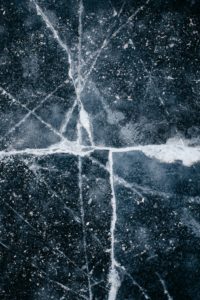
Photo by Tom Barrett on Unsplash
February. A couple of days with -40 degrees wind chill here in Maine that felt apocalyptic. A dead car battery. At work, a broken pump in one of the pools, private swim lessons, ill team members, and an upcoming lifeguard recertification training this weekend, which I’m sure I’ll pass. Probably. A $250 “unscheduled delivery charge” on a $500 + propane bill, as though the brutal cold was somehow our fault. A possible estate tag sale on the contents of my mother’s untenanted house in Colorado, as she now lives in memory care.
The sound of the cardinal at the birdfeeder. The cats basking on my desk in the morning sun. Blueberry lavender tea. The scent of a lavender candle. Imbolc, when the wild maiden returns. The Ice Moon, or, if you prefer, the Storm Moon. Daylight arrives earlier and lingers later.
Through it all, I think about The Mother. The Mother the wild Imbolc maiden might become. The Mother who nurtures, creates, carries the possibility of new life and beginnings within us. I think of biological mothers who labor and deliver a new baby into the world. I think of foster mothers, substitute mothers, women who grieve for their empty wombs. New mothers. Struggling mothers. Mothers whose children have grown and gone, or just … gone.
Sisters and aunts and grandmothers. The long line of mothers who stand behind our own mothers.
Myself as Mother.
I wrote down a quote recently. Unfortunately, I didn’t write down the source of the quote! I always think I’ll remember and then I don’t. Never mind. If it’s yours, let me know and I’ll give you full credit!
“A mother without fear of her own potential.”
There are so many ways to unpack this. A creator, an archetypal mother without fear of her own potential. Is there any artist or maker alive who doesn’t struggle with his or her fear of failure and success?
A young woman, simmering with hormones, discovering the power and potential of her sexuality in the context of rape culture and patriarchy; risking unplanned pregnancy, sexually transmitted diseases, violence, heartbreak, health, and even life.
A woman who longs to be Mother but cannot conceive, or carry, or deliver a living child. The yearning. The agony. The grieving and despair at being unable to fulfill such an overwhelming biological imperative. A woman who feels herself a vessel of death rather than a vessel of life.
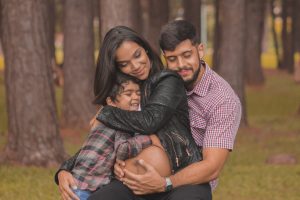
Photo by Laercio Cavalcanti on Unsplash
A mother, the sweat of labor still on her face, swept with a ferocious love for the infant she’s just birthed, a love terrifying, passionate, transforming the landscape of her life irrevocably and forever.
A mother, lined, weary, anguished over her child’s unhappiness, ill health, addiction, behavior, wounds, choices, death. The passion of her pain equals the passion of her love. The passion of her rage and fear equal the passion of her love. How can this child we carried and cherished and loved so deeply, this child we would have defended with our teeth, our fingernails, our life, make self-destructive choices? How can they refuse to love themselves? How could we have failed to protect their health and happiness?
The ability to love like a firestorm, like a hurricane, like an earthquake, most would agree, is exciting and wild, a beautiful force of nature, perhaps the most powerful feeling in the world. But never forget passion cuts both ways. If we release and allow the potential of our love, we have opened ourselves equally to grief, loss, rage, unendurable pain.
I am a mother. I fear that potential.
Not that I had a choice. The feel of my newborn sons in my arms overcame me as powerfully as labor did. I was helpless before it. Their wellbeing and existence twined inextricably with mine in an instant. I made no conscious choice and had no conscious control enabling me to stand back from my potential as Mother.
I was Mother. They made me into Mother. I can never go back.

Photo by Liane Metzler on Unsplash
Yes, I know, boundaries are important. Individuation is important, as are freedom, letting go, and a hundred other facets of emotional intelligence I’ve written about on this blog. But I’m not talking about the long road of motherhood here, where we learn and stumble, fall down to rest, weep, get up, learn and stumble again. I’m talking about the timeless primal bond, deeper than language, deeper than reason. The wild love that works through us. Divinity, perhaps. Some would say The Devil. Whatever it is, it’s bigger than us. Bigger than me, anyway.
Do we imagine our own mothers feeling about us as we do about our children? Can we imagine it?
I can’t. If my mother felt for me what I feel for my sons, the tempest of her passion was never expressed in a way I understood it. Not in words, not in touch, not in action. Now, as she drifts in her dementia, I wonder, though, if she did feel as I did, but some great wound or constriction in her heart, now loosened because she does not remember it, did not allow her to express it. Perhaps her fear of her own potential as Mother was too great to allow her to demonstrate the depth of her love.
If so, I can understand. I can forgive.
Can I forgive myself as Mother? Can I forgive the things I didn’t say and should have, the things I did say and shouldn’t have, the unintended hurts and consequences as I made choices and lived my life? Can I forgive my inability to keep them safe every minute of their childhoods? Can I forgive my ignorance, my lack of understanding regarding their needs and challenges?
I used to tell a story about an orphaned boy who was “so lonely and so hungry nobody wanted to be with him.” That phrasing always made me fight tears when I spoke it. More than my many imperfections as Mother, can I forgive the way I tried to abandon the Mother part of myself? As my sons grew into manhood and began to live their own lives and I saw their challenges and pain, the Mother in me was too lonely and too hungry. Too filled with pain and rage, grief and shame. I turned away from her for a time, walked on without her, left her alone in the wilderness to live or die, as long as I didn’t have to experience her hunger, her loneliness, her feelings.
With my first child, I claimed the potential for Mother within myself. I flung myself into it, holding nothing back, having no thought of caution or reserve. And then, years later, I rejected it, abandoned joy and love because I could no longer face the pain. I severed myself from my own mother. I severed myself from my experience of Mother. I sundered myself and lived for a time with a cleaved heart.
But my love is a blind thing, a feeling without reason or logic. No matter the distance between my mother and myself, my sons and myself, my love did not diminish. Nor did the suffering that goes with it. The internal Mother I evicted grieved and wept. She lit candles and raged and feared and prayed for peace, for all to be well. She scratched at the windows of my life, whispered dreams beside my pillow, followed me like an abandoned spirit. She is mine and I am hers, though I tried to cast her away.
I know I will never be whole without her. The child within me, the crone I am growing into – both need the Mother. I need her as I care for animals and people, as I nurture new life in the garden, as I teach children to swim, as I write, as I cherish my friends and family. As I cherish myself.
Perhaps I simply needed a break from the pain. Perhaps I could not learn to love myself while being battered by the needs and demands of my mother and my sons. Now, my ability to care for and nurture myself gives me a place to pause, to rest. Perhaps, as I age, I am growing in wisdom, losing not the depth of my love, but the frantic edge that cuts so keenly. Love, after all, endures. Motherhood endures. I am the sum of my parts plus a little more. I cannot decide to be less. I might as well accept all of myself, reclaim all of myself, be all of myself. 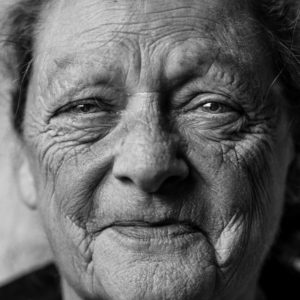
And so, I’ve returned, Mom. We were not a perfect mother and daughter, you and I. We each did our best, and now my best is better than that. Let there be peace between us now, at the end. I have never stopped loving you. And Mother of my sons, cease following me just out of sight. Come in. Let us soothe one another’s weary regrets and scars. We loved with everything we had. Those we gave life to were never ours to keep. They must walk their own paths. Let us find a way to release our love from our pain.
Let us reclaim one another.
Questions:
- What was your experience of being mothered?
- What has been your experience of being a mother in the wide sense, as a creator, a biological mother, or a substitute, surrogate, or foster mother?
- What potential in yourself do you fear?
- Who in your life has been so hungry and so lonely nobody wanted to be with them? Have you ever felt like that person?
Leave a comment below!
To read my fiction, serially published free every week, go here: 